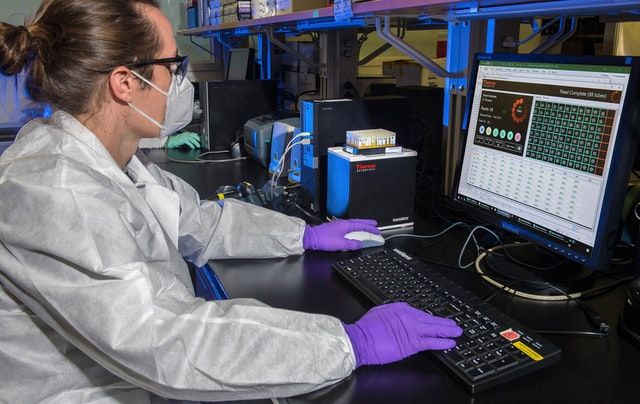The Pros and Cons of Using Artificial Intelligence (AI) in Healthcare
There is no greater wealth than your health. It follows that healthcare is an important aspect of all our lives as at some point, everybody will require some form of healthcare treatment. The problem is that as the population grows and ages, our healthcare needs become more complex, and the resources to meet these needs are being stretched to breaking point. Clinicians work tirelessly to ensure the best life quality and longevity for as many patients as possible, but this is a demanding task and requires tools to support them. Fortunately, new and innovate technologies are being developed every day to improve the ability to treat people effectively. Artificial Intelligence (AI) is one example of a technology being used to augment, optimise, and streamline the healthcare process in new and exciting ways.
Given the vital role that the healthcare industry plays, it is imperative the adoption of AI tools involves thorough consideration of the potential implications of using this technology. As we look towards the potential benefits these tools can create, we must also consider the potential problems that they could cause, ensuring patients can be protected against the repercussions of AI’s mismanagement. Here are some of the main benefits to the use of AI in healthcare - along with the areas we must remain conscious of moving forward:
Pros of AI in the healthcare industry:
The use of AI within the healthcare industry is growing rapidly: performing back office administrative tasks, classifying documents, and even assisting diagnosis. These tools offer a host of benefits to patients, as well as augmenting institutions and clinicians’ ability to perform their role. Here are some of the most prominent ways that AI is benefitting healthcare:
1. Optimising resource allocation:
Healthcare resources are finite. Because of this, difficult decisions must be made as to what resources, services, and initiatives should be prioritised and funded within healthcare. For example, a limited NHS budget for radiology means it isn’t feasible to have an effective radiography unit at every hospital: decisions must be made as to the most effective locations that benefit the most amount of people. However, the reality is that sometimes these decisions are not optimal and that decisions made based on helping the greatest number of people can still disadvantage people in need.
AI can help healthcare services ensure that decisions such as these are thoroughly informed and maximising the utility of available resources. AI’s ability to handle large amounts of data and offer unique insight can help healthcare services ensure that decisions made by healthcare professionals are data-driven, and result in the effective use of limited resources. What’s more, AI’s predictive ability can allow healthcare services to anticipate demand for services and ensure resources are provisioned accordingly, avoiding unnecessary expenditure and waste. These informed insights from AI can support healthcare services with taking the most effective action with what they have, meaning that more people can be helped.
2. Informing clinical health decisions:
Data is an integral part of healthcare. Clinicians rely on patient data such as historical health and current symptoms to make an informed diagnosis and advise treatment. But how can clinicians ensure they are making the most effective use of the available patient data and making the best decisions? Doctors and nurses are medical experts, but they are not data-scientists, and analysing masses of data is a time-consuming process: taking medical professionals away from treating patients.
AI can identify patterns and extract key insights from massive amounts of data that may otherwise be invisible to clinicians and be the deciding factor in quality of patient outcomes. AI can use clinical data to provide informed diagnosis faster and personalised, more effective patient treatment to meet a patients needs and ensure they receive the high-quality healthcare they deserve.
3. Access to Virtual Healthcare:
Sometimes, people struggle to get access to the healthcare support they need. Covid-19 gave rise to the challenge of clinicians trying to offer consultancy, diagnosis, and advice virtually without compromising on quality. Digital platforms have since become a fundamental part of the healthcare system and allow for the delivery and receipt of healthcare treatment online without the problem of high foot traffic at a time where in-person contact was limited.

AI applications form part of the backbone of these digital healthcare platforms and provide the support to meet high demand and ensure patients receive effective treatment quickly. Examples include interactive AI-powered chatbots which allows patients to make enquiries and submit information about symptoms and receive guidance regarding potential health concerns quickly and easily. These are an easy to access and scale solution that helps balance high demand with the need for clinicians to prioritise their time towards critical, time-sensitive or emergency cases.
Cons of AI in the healthcare industry:
While AI applications in healthcare offers a range of benefits, there are legitimate concerns about its use that must be addressed. With people’s lives and well-being in the balance, it’s important to realise that mistakes cost lives. The tools we use to improve patient outcomes must be accurate, precise, and consistent and do everything possible to minimise error. If a mistake happens as the result of using an AI tool which people feel may have been identified or avoided by a human in the role, the sentiment towards the use of these tools has the potential to turn for the worst. Here are some of the complexities of AI in healthcare:
1. Healthcare involves ‘human’ decisions AI cannot replicate:
The Hippocratic oath is not just a statement, but a pledge that carries a lot of meaning for clinicians. To meet this oath, humans have to make difficult decisions for patients that consider a wide context of medical knowledge, ethics, morality understanding and ultimately, a level of human emotion. For some, it may be difficult to imagine an AI tool could make these same decisions effectively, especially when emotive or instinctive aspects of a decision cannot necessarily be captured within data.
One example of this comes in the problem of the rule of rescue: the imperative to rescue an identified individual who needs help at any cost. The problem with this rule regarding healthcare resource allocation is the ‘cost’ to save an identified person can come at the expense of multiple, anonymous, statistical lives. Healthcare professionals are responsible for weighing up these different factors to form a conscious, reasoned, and hopefully unbiased decision. But how can we be sure that AI tools will make better judgements and decisions – and what constitutes better? This is a prevalent problem in AI applications such as resource allocation – is the human, emotive imperative of the rule of rescue the most ‘optimal’ use of resources, especially when considering the wide scope of what is ‘optimal’ in healthcare choices (e.g., number of lives benefitted, quality of life, total longevity generated).
We need to ask ourselves how we as humans will feel – and more importantly, how we will respond – in scenarios where an AI’s cold and utilitarian judgement conflicts with our values, for example if an AI system were to judge the ‘optimal’ use of available resources entailed ending treatment for identified individuals (i.e.: people who will die without intervention) to instead increase the lifespan of many statistical lives by only a few years, yet still maximising the overall amount of years.
2. AI May Perpetuate Bias Within Healthcare
One problem that continually faces AI applications is bias within the data or the framing of a task that negatively impacts decision making and disadvantages different groups. AI systems analyse data and identify patterns that provide insight that inform decisions: but the effectiveness of these tools can only be as good as the data that is fed into them How can we be sure these tools will act fairly, especially when they are given the responsibility of potentially life-changing decisions?
Healthcare is no stranger to bias. One high-profile problem is the racial bias prevalent within skin condition data. Diagrams for skin conditions have a tendency to be tailored towards lighter skin, meaning that darker-skinned patients have suffered from lower success rates for diagnosis for dermatological conditions. If image-classification AI tools are used within the field of diagnosis, there is a risk that similar biases could appear if the data set reflects this bias and is not representative of the broader population. This is critical to be aware of and also understand that the role of AI is to augment rather than replace human expertise. Properly planned and executed, AI tools have the potential to improve health outcomes for billions of people; they also have the potential for catastrophic effects when people’s wellbeing – or even lives – are dependent on biased systems to provide a fair and accurate judgement.
3. AI needs private clinical healthcare data:
Patients have the right and expectation that their data be kept private and confidential and not have information related to their health shared without their explicit consent. However, many of the benefits of AI tools within the healthcare industry rely on the health data from patients in order to operate effectively. How can these tools learn to simulate human judgement and expertise without having access to the data that allows them to learn these patterns?

While some humans may choose to willingly share their data, this is not a fool proof method of collection. AI systems become more sophisticated, and the more high-quality as more data is fed to them. So, a difficult question arises as to which is more important: AI systems with minimal bias that perform to a high degree of accuracy and precision when making life-sensitive decisions, or a patients right to confidentiality and the privilege to deny the use of their data without fear of exposure of prejudice, even when it may help save their lives and the lives of others?
Final word:
Looking towards the future of AI in the healthcare industry, the relationship seems optimistic, yet something we should approach with caution. There are many great ways that AI can improve healthcare services, improving the experience of patients while simultaneously easing the burdens of clinicians. However, in order to experience the benefits of AI, careful action must be taken in order to ensure that they act effectively, and are used appropriately considering the all too human side of healthcare.
Written by Joseph Myler and Clayton Black
